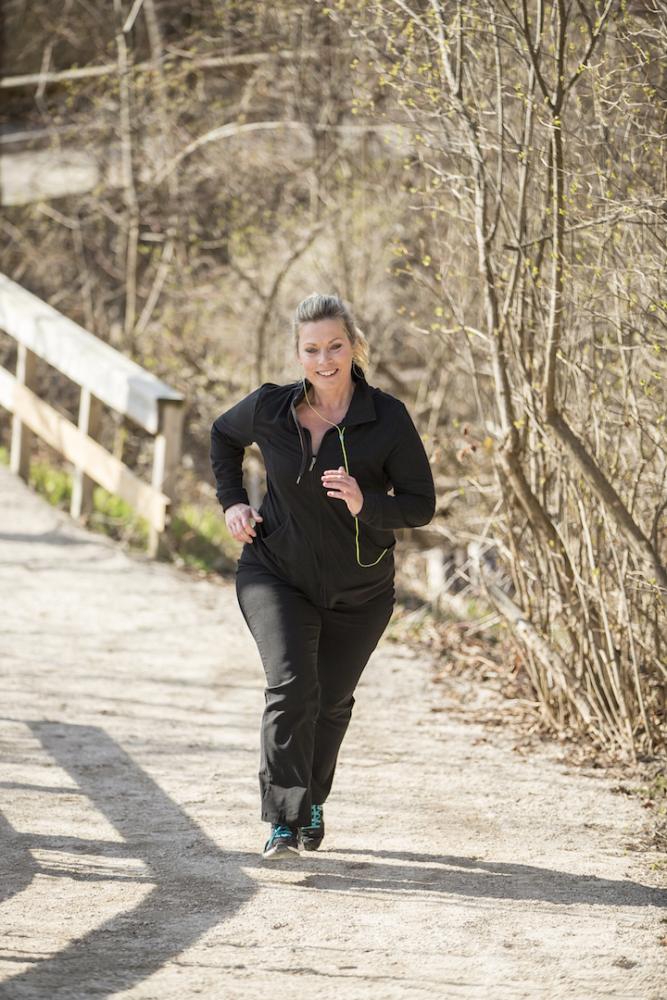
It’s hard to imagine that getting hit by a truck could be good for your health, but this is exactly what happened to Rhonda Scholtz. A cycling accident in her hometown of Goderich sent her to the local hospital, which led to a surprising discovery - her blood pressure was extremely high, especially for someone as fit and active as this 43-year-old mother of two...
It’s hard to imagine that getting hit by a truck could be good for your health, but this is exactly what happened to Rhonda Scholtz.
A cycling accident in her hometown of Goderich sent her to the local hospital, which led to a surprising discovery - her blood pressure was extremely high, especially for someone as fit and active as this 43-year-old mother of two.
An angiogram was ordered and Rhonda was shocked to learn that one of the main arteries in her heart was completely blocked. “The possibility of a massive heart attack was very real,” She says. “It was a time bomb waiting to happen.”
Rhonda needed to have coronary bypass surgery. She remembered her uncle and the huge scar that ran down his chest from his open-heart surgery. She also recalled his painful recovery period and how it took him months to feel normal again. How would she manage work, her family responsibilities and her active life?
It was Rhonda’s cardiologist who suggested an alternate solution. “He explained that there was a new way of doing bypass surgery and that it was much less invasive,” she says. “London was one of the few places in Canada doing this – and he referred me right away.”
Dr. Bob Kiaii performed Rhonda’s life-saving robotic bypass surgery. Over a seven-hour period, he created a new pathway to Rhonda’s heart, and he did so through just three tiny incisions. This dramatically different and less invasive type of surgery meant that Rhonda’s recovery would be far less traumatic than her uncle’s experience. Both the sophisticated robotic equipment and the advanced robotic surgical skills are available at LHSC in large part due to ongoing donations to the Foundation by patients, community members and corporations.
Unlike traditional bypass surgery that often requires a hospital stay of up to six days and three months of recovery, the minimally invasive surgery Rhonda received meant she was able to go home in just three days. “I was so happy to be home again,” she says, “and was just itching to get back to normal.” She went on a long walk on her first day home, and within a week she’d returned to work and to exercising at the gym. Two months later, she went on a sailing trip with her dad.
When Rhonda looks back, she sees her accident as a wake-up call. “Someone was telling me to pay attention – and I feel so lucky to be here with my family, with a strong and healthy heart and I know it is all thanks to the leading-edge technologies and skillful physicians at LHSC.”
“Getting hit by a truck could’ve killed me – but it actually saved my life.”
-- Rhonda Scholtz
